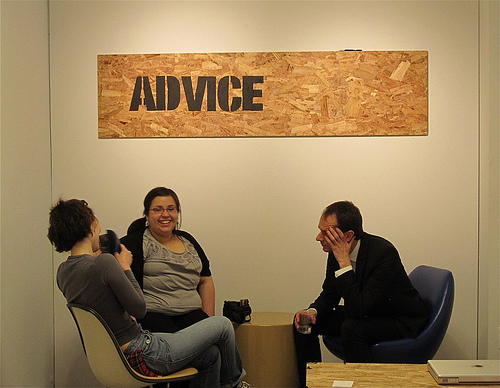A brief hypothesis on the painful loneliness experienced by some as a hypothetical result of projective identification from others.
‘Tis the season to be jolly.
Fa la la la lah, la lah, lah, lah.
As I said a pre-Christmas farewell to a colleague last week, he referred to this period as the ‘nonsense’ season. It got me thinking: if this holiday season could be nonsense … to whom might this period make no sense?
Opting-out of Christmas.
“How do we opt out of Christmas gifting w/o being Scrooges?”
Jenney – Savings Advice Forum.
For many people, the approach of the season switches on certain automatic behaviour. Behaviour coming from certain assumptions and certain expectations:
- We must prepare to buy gifts for people.
- We must buy the right sort of food.
- We must write and sends greetings cards to people.
- We must begin deciding with whom we will spend days like Christmas and New Year’s Eve.
- We must remember people whom we’ve barely given a thought to during the year.
Notwithstanding this list comes from this author’s keyboard, there’s an interesting lot of ‘must’ in the list.
For most, preparation for the seasonal behaviour can be stressful and it’s a chore. For some, this behaviour is natural and pleasant. For some, this behaviour (whether acted out by themselves, or observed in others) it is a painful reminder that there are few-or-no reasons to participate in this seasonal ‘must’ behaviour.
For those who are without families – whether biological or extended – or few or no friends, the holiday season becomes nonsensical. How easily it seems one can be forgotten whilst it seems everyone is running around preparing for a jolly season. Those not participating in the season can, perhaps, emulate the jolly behaviour of buying gifts for people, yet one may also be carrying a heavy heart suspecting that what few social contacts they have will disappear during the holiday season as people venture off towards their families-of-original loaded with tokens of ‘musts’. One can emulate the behaviour or buying the right food for Christmas day, yet one knows that the food won’t be shared with anyone. One can decided with whom they will spend holiday days, but it’s likely that friends and and those who are reasonably close will have already decided to attend family events – leaving others who are not family behind.
Rather than simply being ‘nonsense’ for some people, I’d offer that this seasonal period can be an extremely painful reminder of the solitude that some tolerate. Solitude that is tolerated – even embraced – with pleasure during the counterpart of the year, but a solitude that borders on becoming unbearable loneliness during this holiday season.
Year-Round Solitude versus Seasonal Loneliness.
“You’d like some other bears!”
Dr. Gina Toll – ‘In Treatment‘
A human being is a social being – he needs to not be alone. So, how can it be that solitude (the state of being on one’s own) does not feel lonely (sad at having no friends/company)?
From an object-relations perspective (Wikipedia), our psyche grows in relation to our position with respect to others, and our experiences of them. Good and bad experiences of significant people from our lives (parents, siblings, teachers, lovers etc), are stored within the psyche as mini-templates: in theory, they become ‘internalised’ objects.
One’s good & caring mother stored away in the ‘loving mum object’ gives some of us the sense that we are cared for, even when mum has passed away a long time ago.
Conversely, those of us who were given the experience that we were not cared for, could be stored away in the ‘persecutor object’, remaining a reminder that as a human being we are someone who others will not care for.
I’d offer the thought that internalised objects can be a factor in how one approaches being on one’s own. The word “solitude” is used to describe a choice – that in being without company one feels good. Loneliness is used to describe no-choice – that in being without company one feels bad. Solitude is pleasant because one does not sense being alone when accompanied by supporting internalised ‘good’ (or good-enough) objects, whereas perhaps loneliness is the lack of good objects/the presence of bad ones.
Object Relationships & Seasonal Nonsense.
“the self, exists only in relation to other ‘objects,’ which may be external or internal.”
New World Encyclopedia – Entry: Melanie Klein
It makes me wonder how in our society the change in social behaviour (eg the approach to Christmas) effects the meta-structure of the psyche’s internalised objects of participants, observers and affectees.
If, during the year, one can tolerate one’s place in social relationships (e.g. occasional social-meetings with friends, but primarily spending time on one’s own) there would appear to be something in the shift of social behaviour (“we must now prepare for Christmas”) that shifts the meta-organisation of the internalised objects for some (“I am in solitude” shifting to “I am lonely”).
Containment of ‘the loneliness’.
“projective identification may unconsciously aim to get rid of unmanageable feelings but it also serves to get help with feelings”
Patrick Casement – Further Learning From the Patient (cited in Wikipedia Article)
It would be my hypothesis that those who are capable of tolerating, even enjoying, being on one’s own become those who, hypothetically, are capable of holding the fear of loneliness that rest of society must split-off and discharge in order to participate in Christmas.
It’s not uncommon to read Twitter and Facebook posts that many people complain of the commercialisation of the season. Minor, barely-heard protests from some people about feeling caught-up helpless in the season. I’d offer that in order to participate in this season – that one must not be alone during this holiday period – that wish for non-compliance must be temporarily blanketed.
From the works of Melanie Klein, and later Wilfred Bion, we have come to understand that the mechanism of ‘projective identification‘ (Wikipedia) intolerable pain within the infant is, unconsciously, sent out to another person ( a care-giver ) who will contain the projection, maybe process it into something more tolerable, and hold it until the infant psyche is able to take it back later.
This meta-process allows something that is very painful – or in conflict with other mental demands – to be sent away from the psyche that cannot manage it for now, placed into a psyche that can manage it better for the period.
This process is made use of in most psychotherapies (psychoanalytical, psychiatry, psychodynamic counselling) where the therapist may become aware of ‘containing’ or ‘receiving’ something on the patient’s behalf.
A patient revealed some news that the therapist believed he was meant to find worthy of congratulations; whilst the patient sounded excited about the news the therapist, instead, felt huge waves of rage that he was not able to associate with the apparent glad-tidings. The therapist pondered that he may have been ‘containing’ something split-off that the client could not manage; could not manage at the same time of holding onto the thought that this news was good.
Notwithstanding other explanations (such as the therapist’s own personal constructs: possible jealousy about the news), the therapist used this experience to inform his questions: gently wondering out loud with the patient about the news and its implications. What later appeared in the work was the patient’s terrible fear about the responsibilities this news would require of him; that the patient was terrified of the implications and responded to his fear in a very angry manner.
Hypothetically, therapist had experienced the patient’s split-off and unconsciously communicated rage. The therapist had found himself in a state of conflict: being expected to reply ‘congratulations’ but filled with something quite opposite. The patient – without the rage – was able to participate in a normal celebratory appearance whilst delivery the news. The therapist appeared to have been left holding the unacceptable part until the patient was able to take it back.
During this time of the year for Christian-based societies, people either have to participate in the ‘jolly season’, or be able to tolerate the shadow-side of not-taking-part. Those who do not follow the masses have to have huge courage to go it another way.
After all, we still refer to ‘Scrooge’ as a warning to all who do not participate in this meant-to-be-jolly time.
A Seasonal Hypothesis.
The holiday season approaches and folk are filled with ambivalence: good times ahead / bad times ahead.
To be participating in this holiday season, the psyche may need to split-off the more ‘horror’ parts that would interfere too much taking part in Christmas. The need to be away from the celebrations (to be on one’s own) are split-off.
Via projective-identification, others who are more capable of tolerating ‘be on one’s own’ can hold the ‘horror’ during the season.
Result: a part of society is able to participate in seasonally-expected behaviours, is able to cast off the parts of one that would wish to recognise the nonsense of the period for what it really might be (commercial etc), and others in society who are, perhaps, more used to the pain of non-participation will contain the seasonal-pain until the holiday season dies away for another year.
In Closing.
This is not a jolly hypothesis.
But it is intended intended to offer a thought – perhaps a rescuing thought – to those who are subject to massive-yet-unexplained changes in their feelings during such holidays seasons as Christmas (and as it’s author, I’m aware that this brief essay turns a blind eye to other hypotheses in order to focus on this one).
Perhaps, whilst you are enjoying your holiday season and a moment of ‘Oh I wish I wasn’t here…’ creeps into your thoughts, maybe that might be your Jiminy Cricket moment. Perhaps someone might enjoy a thought or a message sent their way. After all, someone may be suffering extra painful loneliness, tolerating in order for you to be able to participate in what you must consider as a Happy Christmas.
Nonsense?
Comments welcome.




![Grab a plate and throw it on the ground… 1002196_10151639990871840_1307377321_n[1]](https://icounsellor.co.uk/wp-content/uploads/sites/7/2014/04/1002196_10151639990871840_1307377321_n1-136x300.jpg)






